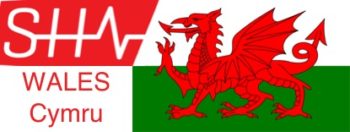Expectations : Party members and elected Councillors, Assembly Members and Members of Parliament
- Purpose
This paper has been produced by SHA Cymru Wales for consideration by Labour Party bodies. Its aim is to encourage constructive debate within such bodies to share the expectations that:
- members may reasonably have of those they have worked hard to see elected to the main governing vehicles in Wales – Councils, Welsh Assembly, and Parliament
- those elected to office have of the wider party.
It is hoped that each Party body will adapt it to capture an agreed view of what members expect from councillors, AMs and MPs and what those elected feel is possible within the many constraints within which they have to operate.
The paper aims to complement and expand, rather than contradict, relevant elements in the Party rule book. The paper is deliberately short and minimalist in content, aiming at broad principles.
- Context
Recent developments within the party suggest that a mature debate about the relationship between members and elected individuals might be aided by an exchange of views about what each expect of the other, both in relation to the way that political policy is created and taken forward, and in the way that party matters are handled. In some CLPs, branches, and affiliated bodies this relationship is healthy and well understood; in others further exploration of respective expectations and constraints may be useful. The paper is confined to CLPs and branches in the main. The place of Local Campaign Forums is not addressed; neither in any detail is that of bodies affiliated to CLPs.
- Elements and principles
3.1. Two arenas
SHA Cymru Wales believes that there are two arenas in which councillors, AMs and MPs operate where they and party members are right to have clear expectations of each other. Those two arenas are:
- a) their work in the democratic chamber to which they have been elected as Labour members
- b) their work in the Labour Party, its committees and advisory structures.
(For councillors, it is the branch setting where exchanges of information and debate will usually take place and for AMs and MPs it is the full CLP).
3.2. Two timescales
SHA Cymru Wales believes that time should routinely be allocated on CLP and branch agendas for councillors, MPs and AMs to share with the membership aspects of their work both in the Commons, Welsh Assembly and Council chamber and also in any significant party machinery, such as the Parliamentary Labour Party, the Welsh Assembly Labour Group, the NEC or WEC, or local authority Labour Groups. Most party units do this as a routine.
For both arenas, SHA believes each reporting session should have both a retrospective and, to the best extent possible, a forward look component. Thus each councillor, AM and MP should report on what has happened since the last meeting in the respective chambers and party meetings. They should also flag up forthcoming notable business in order that party members are appraised of, and have a chance to influence, the actions and decisions that councillors, MPsand AMs are being called upon to take.
3.3. Party members right to be informed about action that has been taken
SHA Cymru Wales believes that party members are entitled to informative but brief reports of what has happened and why, including explanations of why those elected acted / voted / spoke as they did in both chamber and party settings.
Such exchanges should be in the spirit of mutual learning and respect.
3.4. Elected member’s right to seek the advice and counsel of members on coming events without that advice being an instruction.
Wherever possible, SHA Cymru Wales believes that foreseeable and significant future events should be signalled to members with an indication of the elected member’s intentions with regard to voting in the chambers or in major party decisions such as elections and nominations. It is felt that elected members should normally phrase coming actions in terms of “ this is the issue and this is how I am minded to vote / act / speak and why – but I’d like to hear your views”. Such an exchange would be especially useful where those elected sense that their coming actions are likely to be:
- against current party policy
- against clear CLP or branch policy positions
- are matters of a free vote / of conscience.
3.5. Civilised debate
Party rules already require debates and exchanges to be orderly and courteous. It should be possible to explore strong disagreements on policy matters without resort to criticisms of a personal nature. Elected representatives and party members alike are entitled to a civilised forum in which deeply held views can be shared and explored.
